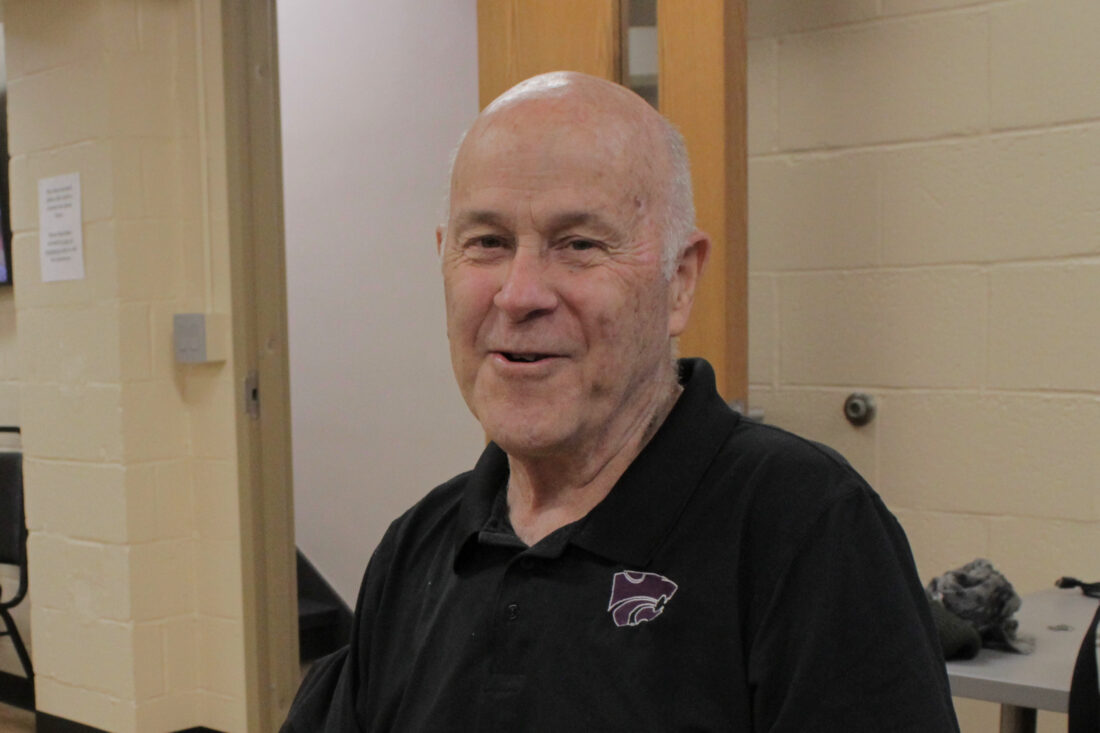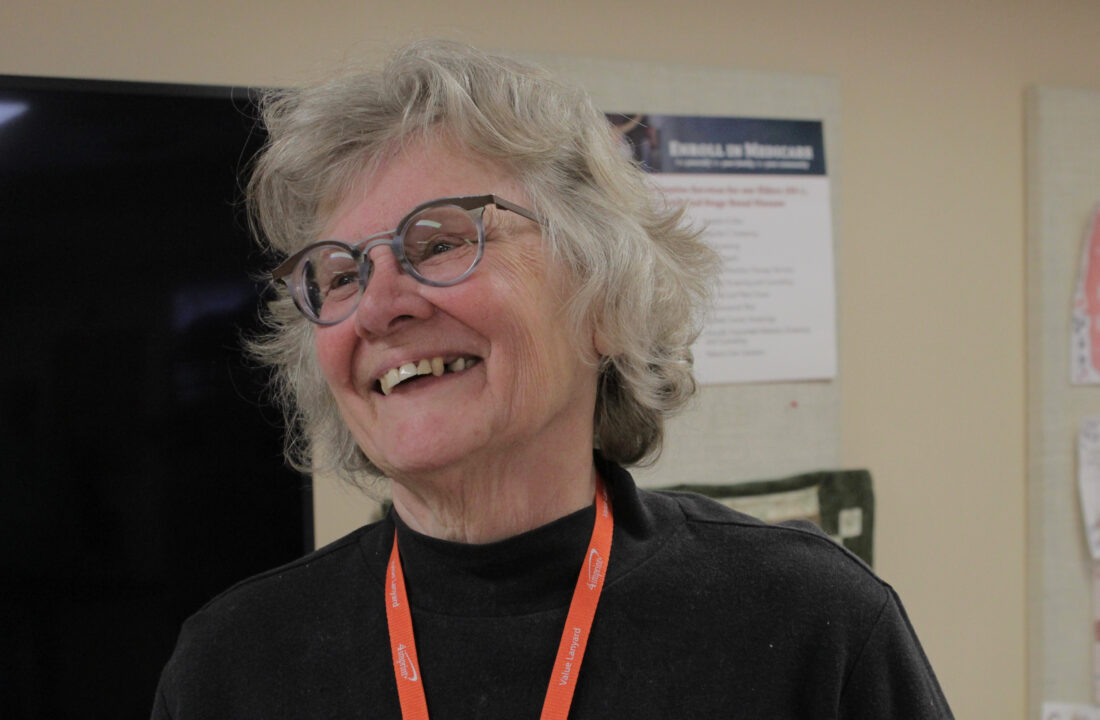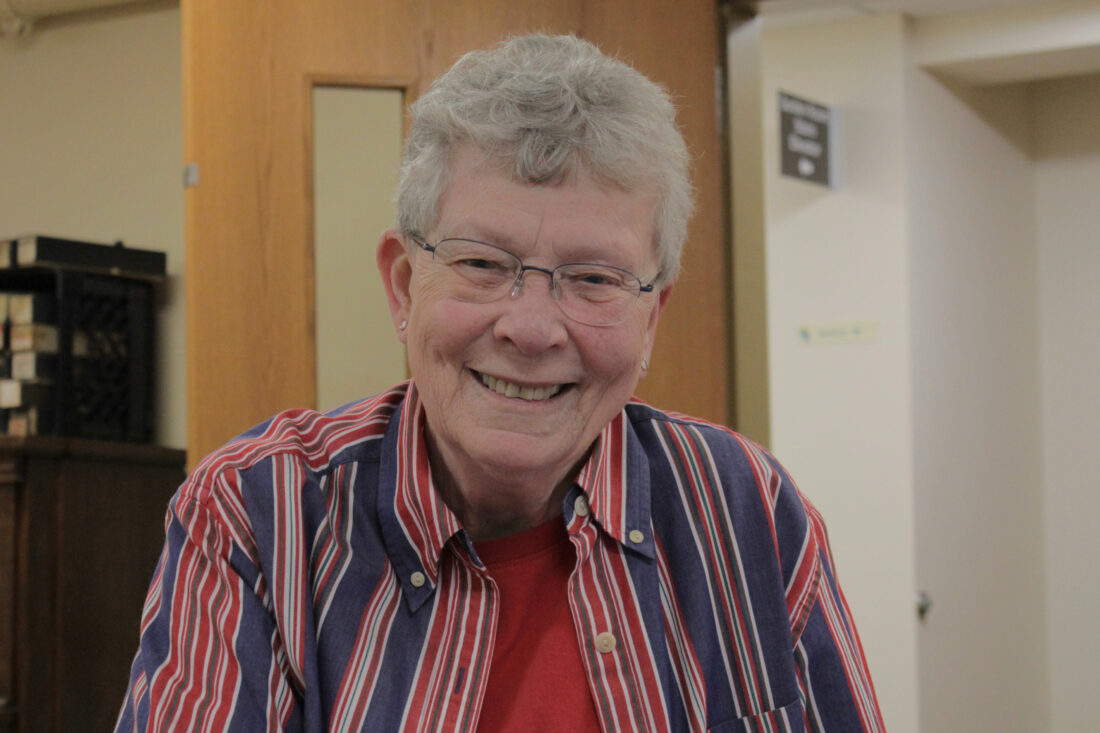60 years after John F. Kennedy’s assassination, Lawrence residents remember where they were and how they felt

photo by: AP File
President John F. Kennedy waves from his motorcade approximately one minute before he was shot on Nov. 22, 1963, in Dallas. Riding with Kennedy are first lady Jacqueline Kennedy, right, Nellie Connally, second from left, and her husband, Texas Gov. John Connally, far left.
It’s been 60 years since President John F. Kennedy was assassinated in Dallas on Nov. 22, 1963. On Wednesday, the Journal-World asked some Lawrence residents what they were doing and how they felt when they heard the news.

photo by: Chris Conde/Journal-World
Ed Heinen
Ed Heinen was a freshman at Kansas State University at the time Kennedy was shot.
“There’s kind of an indelible mark on my mind. One of those things you can remember exactly,” Heinen said.
Heinen and the other men he shared a house with heard the news at the end of the lunch hour: “Somebody came in who had been watching TV and said, ‘Kennedy was shot.’
“That afternoon, there was nobody on campus,” he said. “I went to my 1-o’clock class, but people just didn’t go out that afternoon.”
In class, Heinen said he and the few other people in the chemistry lab gathered around the radio waiting to hear more news about the shooting.
“We didn’t do any chem lab that day,” Heinen said.
• • •

photo by: Chris Conde/Journal-World
David Carl
David Carl was a junior in high school in Waterloo, Iowa, at the time of Kennedy’s death. He was the school’s photographer and had been assigned to take photos for Thanksgiving that week. But when the news about the shooting broke, his assignment changed.
“I ended up taking pictures of people crying,” Carl said. “Most of the students there were just wandering around the compound.”
He said the somber attitude was all around, and that as he tried to photograph students in the halls, many would refuse to have their picture taken alone.
“A lot of people, my friends, classmates, they didn’t want to be photographed by themselves,” Carl said. “They’d be in a group of two or three. But a solo picture, they couldn’t do it. It was a little too much for them.”
Although Carl was at school when he learned that Kennedy had been shot, he, like many other Americans, was glued to the television for the next few days watching the coverage of the shooting.
“I remember watching television and seeing something hit (Texas Governor John) Connally and he kind of turned sideways,” he said. “Then all of a sudden, Jack Kennedy just leaned forward and he just dropped, like he dropped a piece of candy on the floor.”
Carl said the assassination was the first time in his life that he perceived the United States as vulnerable.
• • •

photo by: Chris Conde/Journal-World
Larry Roberts
Larry Roberts was in the seventh grade when he heard the news. Within hours of the shooting, the students had all been gathered into the assembly hall, and together they began watching the news that was coming out.
“Everyone was sad. I couldn’t hold back tears,” Roberts said.
Roberts remembered the theories that circulated after the incident. He said he remembered news outlets pushing a narrative that shooter Lee Harvey Oswald had strong ties to Russia. He also said he followed many of the theories through the years and read books about the assassination, such as “The Torch is Passed: The Associated Press Story of the Death of a President.”
• • •

photo by: Chris Conde/Journal-World
Denise Kester
Denise Kester celebrated her 13th birthday the day before the shooting. The next day, at Truesdell Junior High in Wichita, she remembers the news coming out that Kennedy had been shot, and the whole school began to mourn.
“It came over the intercom that he had been shot. And then I remember all these people crying and carrying on. It was very powerful,” Kester said.
The school announced during the day that Kennedy had been shot, but waited until the end of the school day to announce that he died from his injuries, Kester said. While her classmates were quite saddened by the news, she said her mother was less affected by the Democratic president’s death.
“It upset people,” Kester said. “Then I went home to my mother, who’s a staunch Republican, and she was ironing and, kind of, was not so overwhelmed by the ordeal.”
• • •

photo by: Chris Conde/Journal-World
Linda Stidham
Linda Stidham was teaching second grade in Lake Placid, Florida. She said school officials didn’t tell the students about the shooting and waited until the end of the day to tell teachers. Like Carl, Stidham said the event changed her perception of the nation.
“It was one of the first things that made me feel like America was vulnerable, because I grew up thinking otherwise,” Stidham said.
She said she was fortunate that she wasn’t tasked with explaining to her students what happened in the following days.
“They were second graders, you know, at that time; they were not aware of what was going on in the world around them so much,” Stidham said.
Even 60 years later, she still looks forward to watching new documentaries and TV series about the event, including one set to air this weekend. But she also said she didn’t expect some of the unanswered questions around Kennedy’s death to ever be solved.
“I don’t think we’ll ever really know the truth. The questions have already been asked and answered,” Stidham said.







